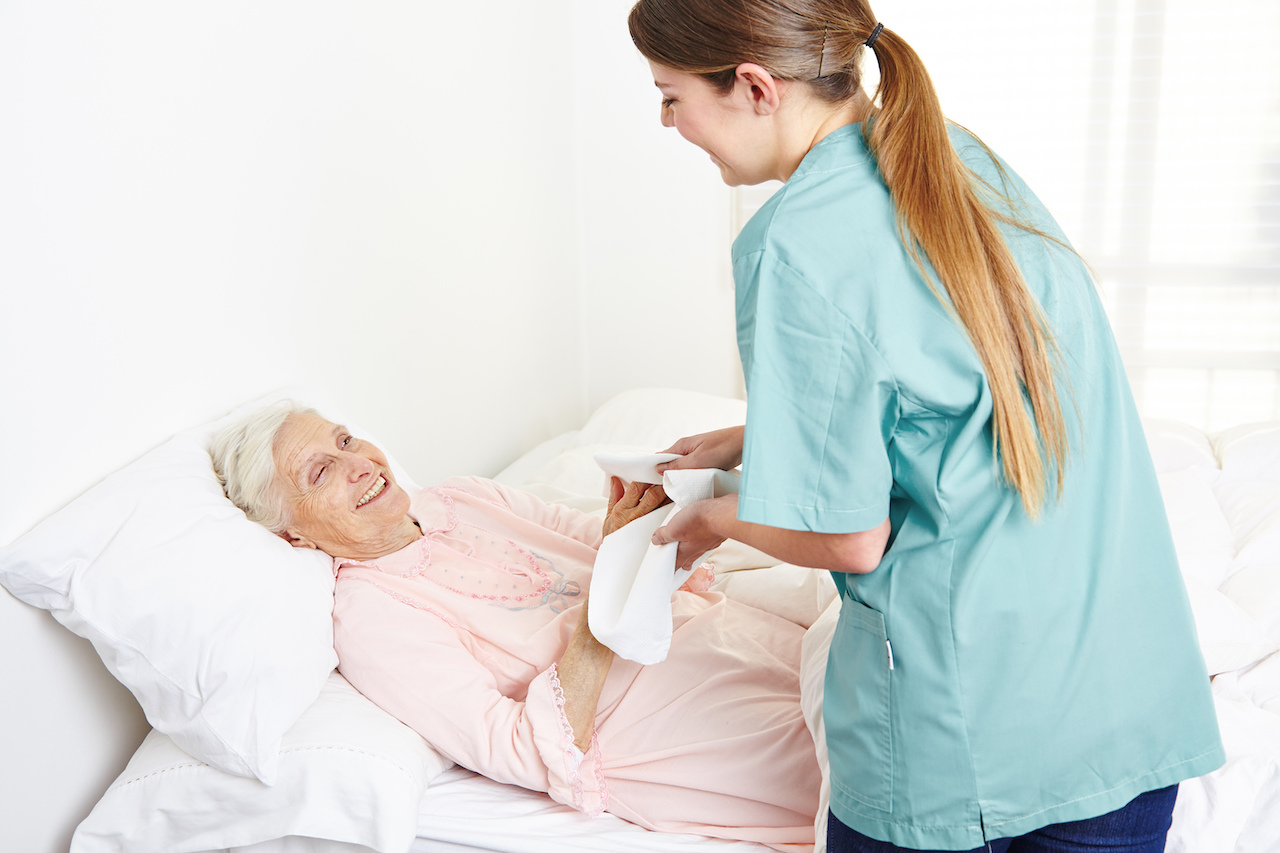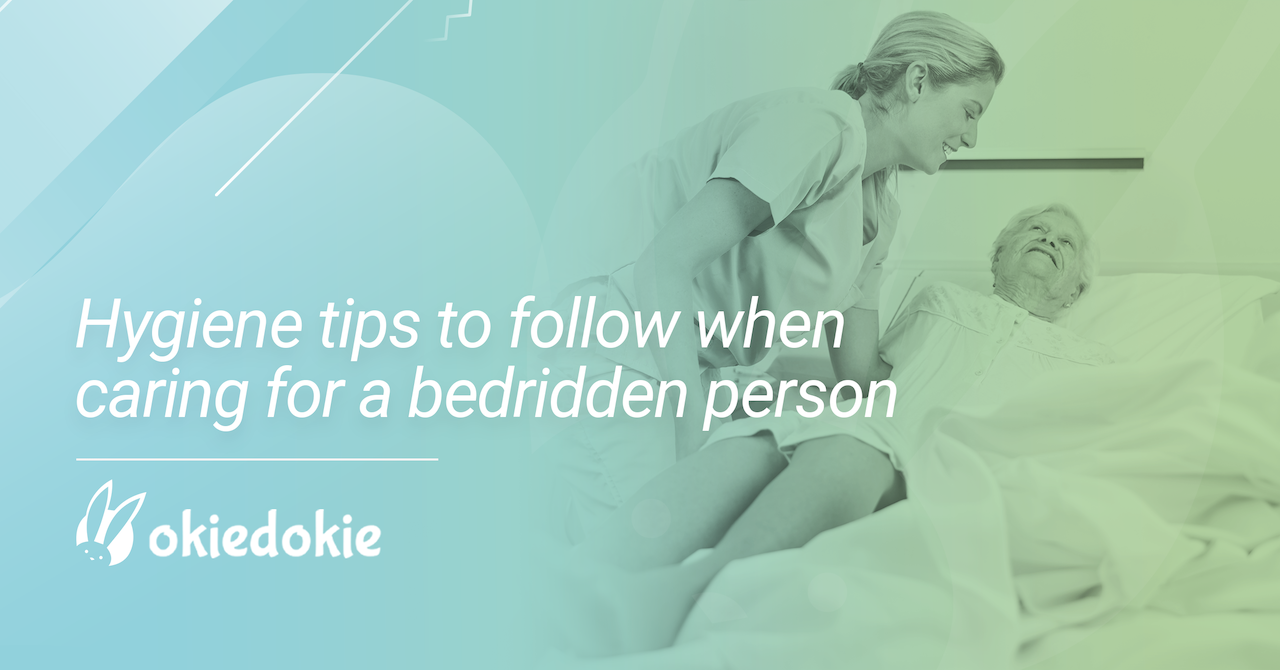Helpful hygiene tips you should consider when caring for a bedridden patient.
- Promote good grooming and hygiene
One of the best things you can do to help any bedridden patient is to make sure that their basic hygiene and grooming needs are being addressed. This includes:
- Giving them a bed bath every day. This will help keep them refreshed and prevent further skin conditions.
- Helping with their dental care routine. Brushing their teeth after every meal will lead to healthy oral hygiene.
- Changing them into fresh, clean clothes on a daily basis. This will prevent that dirt, germs, and bacteria cause any harm on the person.
- Keeping fingernails and toenails trimmed properly. This is important because having long fingernails and toenails can lead to inadvertent scratches and other injuries and/or become ingrown or infected.
- Keeping their hair, beards and mustaches trimmed, brushed and clean. Regular washing of hair is a good practice. This will improve their self-steem and prevent lices. Try to do it at least once a week. You can also use a dry shampoo in between washes to protect hair from oiliness and discomfort.
- Change their bed linen often
Althought it is not necessary to change our bed sheets that often, as we do not spend more than 8 hours daily on bed, when caring for a bedridden patient, you will be amazed at how quickly their bedding can accumulate sweat, dead skin cells, hair or crumbs from food. That’s why their bed linen needs to be change more often, sometimes every 2-4 days, so that the person feels comfortable in them. It is very important to make sure that the new set of bed linen has been properly cleaned and laundered before use.

- Prevent Bedsores
- Clean their room often and craft a comfortable environment
Bedsores are injuries to the skin and underlying tissues that result from sitting or lying in a single position for long periods of time. The prolonged sitting puts pressure on some parts of the body causing the skin to breakdown and break apart. Because of this, the area becomes extremely painful and uncomfortable. In the worst-case scenario, bedsores can become infected and result in major complications that can shorten life. To prevent them is important that you reposition the patient every few hours (if they can move on their own, encourage them to readjust themselves) and frequently check these common areas for bedsores: heels, ankles, hips, and tailbone.
It is also very important to keep skin clean and dry. You should clean their skin as soon as it gets dirty. It is convenient to do it with a soft cloth or sponge. You should use soaps that do not irritate the skin and warm water. Apply moisturizing creams making sure they are completely absorbed and that the area doesn’t stay wet.
A messy environment can pose physical and mental health risks. That’s why it is important to mantain a clean room. Dust can cause difficult breathing, sneezing, itching or discomfort in the throat and eyes; unfinished food left in the room can attract pests; and a messy room can have a negative impact on someone’s mental and emotional state. Keep the room organized, clean and bright (natural light and regular window opening will keep the air fresh, take this into consideration).
Caregiving is a way to make a change in someone’s life. Make the best out of your skills and values through the Okie Dokie app! Download Okie Dokie today!

